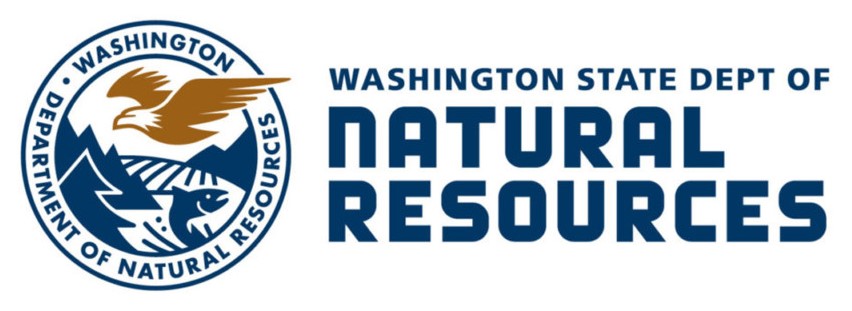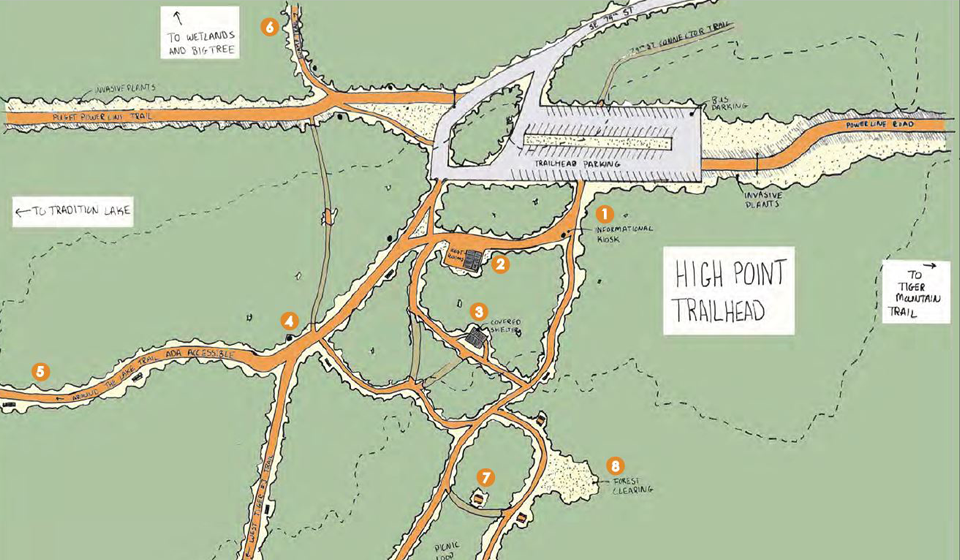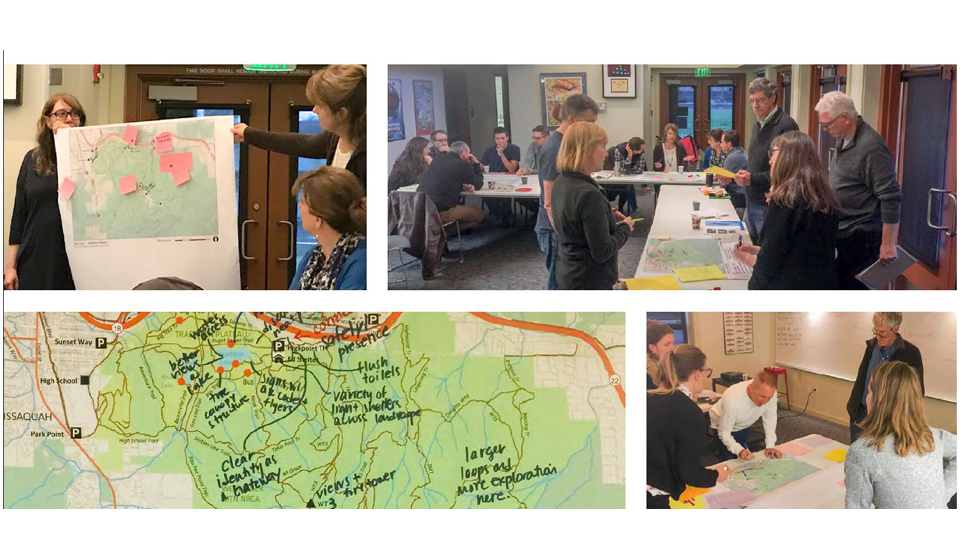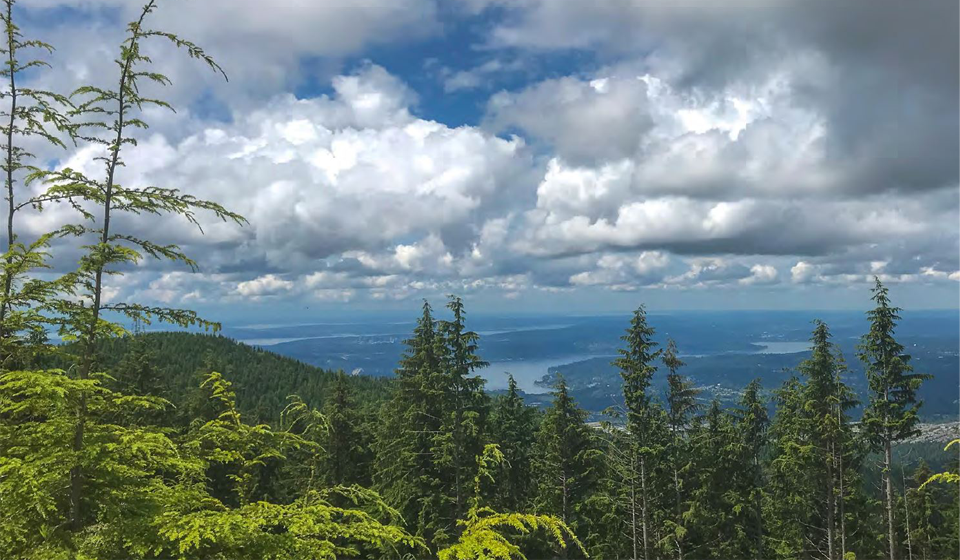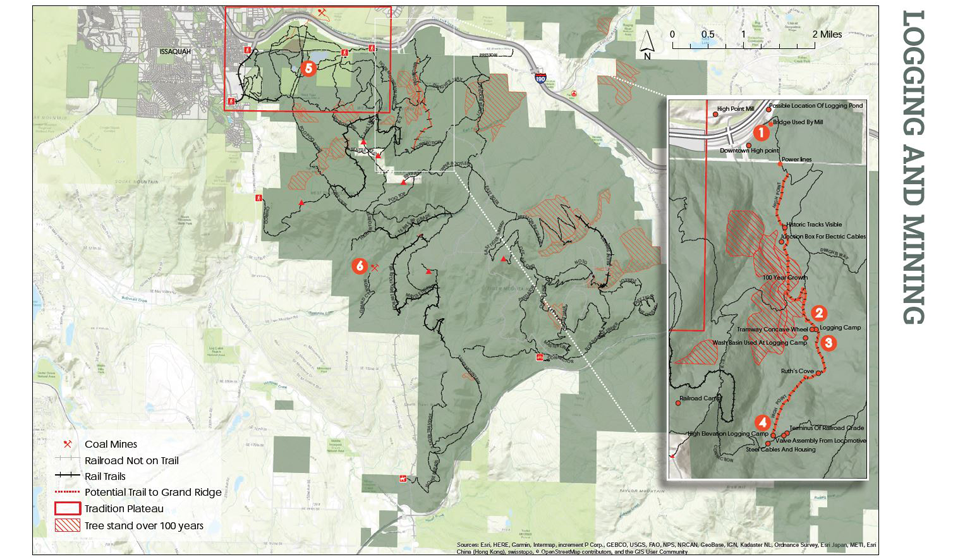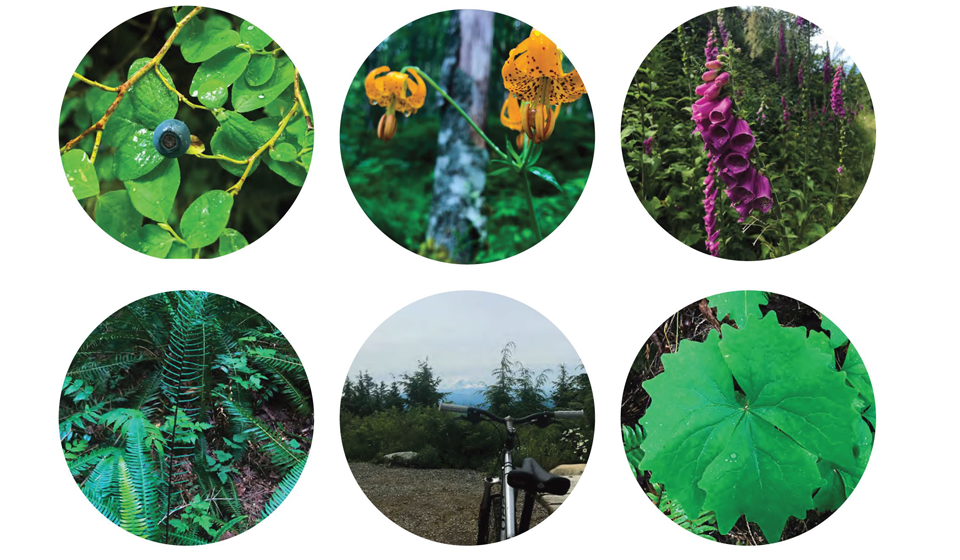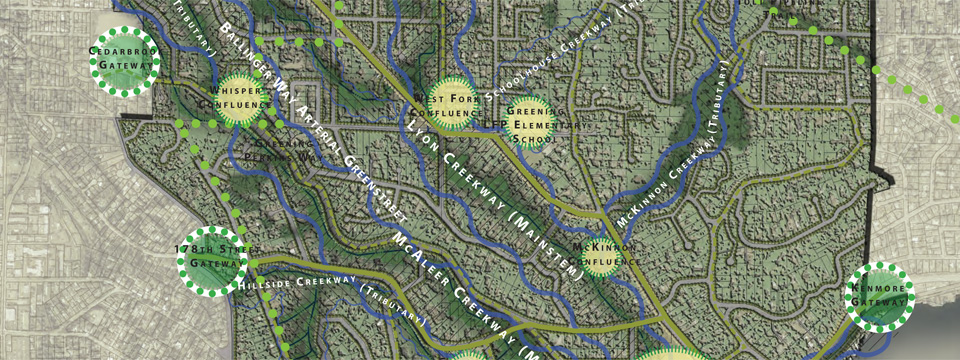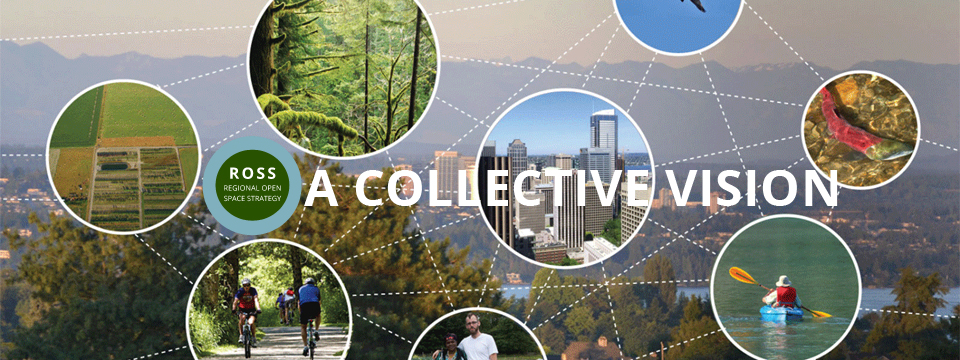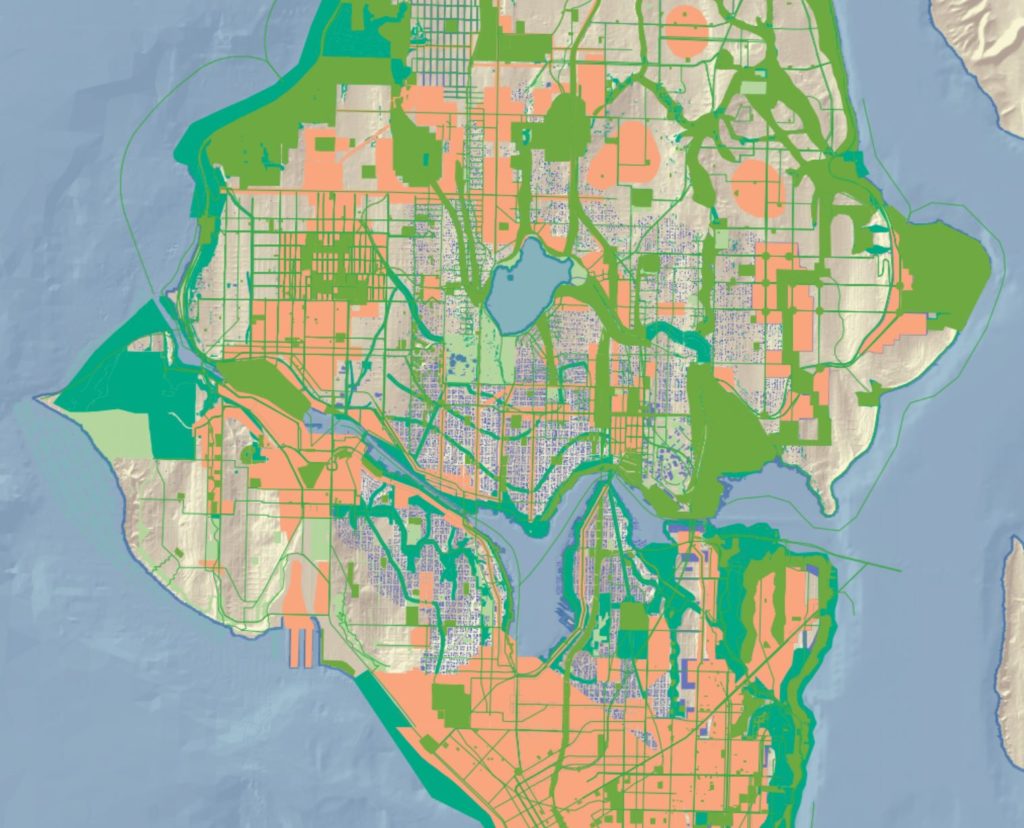September 15, 2021
Tradition Plateau & Tiger Mountain
Opportunities for the Gateway to the Greenway and Precedents: Inspiration for Nature Education and Play
Ilsa Barrett, MLA ’20 + Lauren Iversen, MLA ’20
Situated to the south of Interstate 90, twenty miles east of Seattle, is Tiger Mountain. Darkly forested, the rising mountains frame the town of Issaquah, representative of the vast forests that once covered the entire Puget Sound. Tiger Mountain is a part of the locally named Issaquah Alps, a seried of three mountain peaks that include Tiger, Squak and Cougar Mountains. Cougar Mountain rises 1,598′, Squak’s peak sits at 2,028′, and the tallest is Tiger Mountain at 3,005′. This tongue-in-cheek name, however, conjures the history of local hiking enthusiasts’ efforts to retain this mountain area as natural space and prevent development from encroaching up the slopes. With the rise of Tiger Mountain marking the entry to the foothill landscape, partnerships between the WA State Department of Natural Resources and the City of Issaquah and advocacy by the Mountains to Sound Greenway Coalition played a significant role in the development of Tiger Mountain as an innovative working forest and conservation area of regional significance.
The Washington State Department of Natural Resource (DNR) asked the UW Green Futures Lab to document exisitng conditions and to explore ways to make West Tiger and the Tradition Plateau more welcoming, easy to navigate, and to enhance trails and facilities for environmental education and nature play, while working with respect for the preservation of tribal treaty rights. Ilsa Barrett and Lauren Iversen, interns at the University of Washington’s Green Futures Lab, advised by GFL Director, Nancy Rottle and Laura Cooper of the DNR created both the Opportunities Report and the inspirational precedents compilation. Both of these documents can be downloaded here by clicking the links on the right. Ilsa and Lauren hiked and mapped the trails, conducted interviews and archival research, supported community workshops, and researched inspirational designed places that could inform more equitable, protective, enjoyable, and educational uses of Tiger Mountain and Tradition Plateau, envisioning it as a “Gateway Forest.”
The project was funded in part by a grant from the Washington recreation and Conservation Office (RCO). The DNR, King County Parks, and the City of Issaquah partnered together in 2017 to obtain the grant to plan improvements to trails and facilities in the public forestlands located east of Issaquah, including West Tiger Mountain Natural Resources Conservation Area (NRCA), Tradition Plateau NRCA, Grand Ridge Park and Mitchell Hill. The City of Issaquah’s 2018 Park Strategic Plan supports this work and connections from the forest to city. The project was funded by the RCO grant to uncover the characteristics of Tiger Mountain and Tradition Plateau that make them a valuable community amenity, exploring the physical and experiential stories of place and asking the following questions:
- What are the physical characteristics of the landscape that are unique, and bring users to visit the forest time and time again?
- What experiences are possible that would educate the user about ecological, geologic, historic, and indigenous uses of the area?
- What opportunities might improve the user experiences of this area?
- How might the Highpoint Trailhead and Tradition Plateau be developed as a ‘gateway’ to the outdoors?
- How does the Highpoint Trailhead and Tradition Plateau enhance the vision of the Mountains to Sound Greenway National Heritage Area?
This project did not evaluate the possible cumulative impacts of recreation on wildlife and tribal hunting rights.
Partners + Funders
